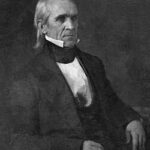President James K. Polk’s prosecution of the Mexican-American War achieved one of the most significant territorial expansions in American history. The conflict began in April 1846 following Texas annexation disputes. Polk skillfully managed military strategy and diplomatic negotiations simultaneously. 📊 The war concluded with the Treaty of Guadalupe Hidalgo in February 1848, securing 525,000 square miles of territory.
Strategic Military Leadership
Polk demonstrated exceptional wartime leadership despite having no military experience. He coordinated multiple military campaigns across vast distances. General Zachary Taylor secured northern Mexico while General Winfield Scott captured Mexico City. The President maintained tight control over military operations from Washington. His strategic vision ensured swift victory with minimal American casualties.
Diplomatic Triumph
The Mexican-American War negotiations showcased Polk’s diplomatic acumen. He balanced aggressive military action with reasonable peace terms. The treaty secured California, Nevada, Utah, and parts of four other states. 💰 America paid Mexico $15 million plus assumed debts, demonstrating fair compensation. This diplomatic approach maintained international legitimacy while achieving territorial goals.
Impact:
The Mexican-American War fundamentally transformed America into a continental power spanning from Atlantic to Pacific. 🌍 The acquired territories included California’s gold deposits, discovered shortly after annexation. This expansion validated the concept of Manifest Destiny for millions of Americans. The new territories provided vast agricultural and mineral resources that fueled economic growth.
Economic and Strategic Benefits
California’s acquisition proved extraordinarily valuable beyond initial expectations. The 1849 Gold Rush generated enormous wealth and population growth. Pacific Coast access opened Asian trade routes and maritime opportunities. 📊 The Southwest’s mineral resources, including silver and copper, contributed billions to the economy. Agricultural lands supported westward migration and food production.
Long-term Historical Significance
Polk’s territorial expansion established America’s modern continental boundaries. The Mexican-American War demonstrated American military capabilities to European powers. It facilitated transcontinental railroad construction and westward migration patterns. However, the expansion intensified slavery debates that contributed to Civil War tensions. 🔥 Despite this challenge, historians widely praise Polk’s achievement of his campaign promises. His presidency fulfilled the vision of a continental United States that defined American identity for generations.
